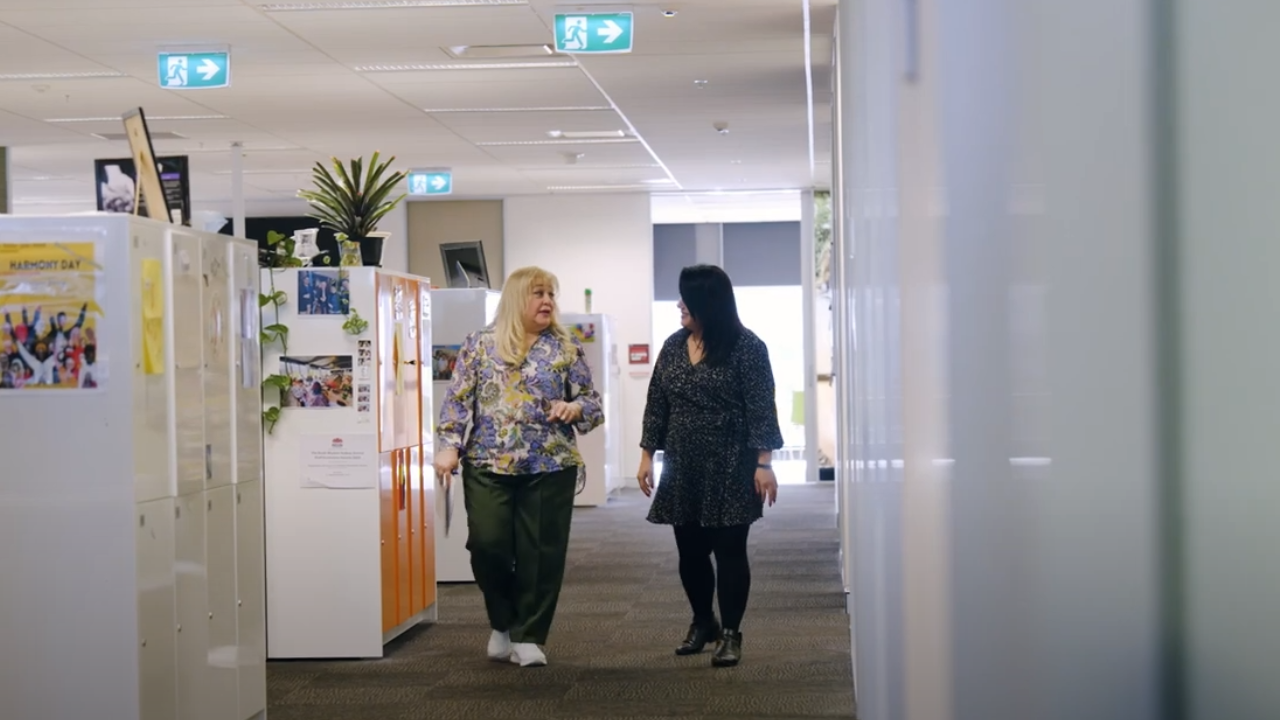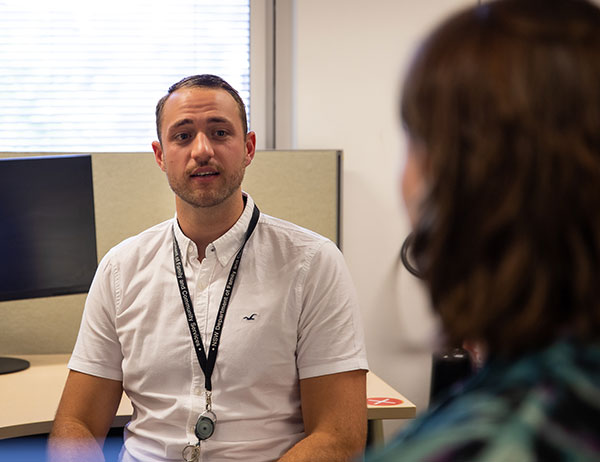Automatic language translation
Our website uses an automatic service to translate our content into different languages. These translations should be used as a guide only. See our Accessibility page for further information.

What do caseworkers love most about working for DCJ?
What do caseworkers love most about working for DCJ?
I'm passionate about working with families to resolve any issues that come up for them so that we can ensure the children are safe.
I support Aboriginal or non-Aboriginal carers to look after children. I'm very passionate about giving an opportunity for a family or Aboriginal kids to progress.
Having an understanding of children growing up in different countries and the hardships they experience led me to develop a passion for my work. It allows me to use my culture within my role and work with families.
I love seeing children smile. Success isn't given to you on a silver plate or anything like that—it's what you gather in your life's journey. And I'm very, very lucky.

The Child Protection Caseworker role allows me to fulfill a lot of my own values. No day is the same, which allows for longevity and an opportunity to continue learning new skills.
DCJ is the perfect opportunity to help others—to help children, to have a positive impact on the community. But you also notice that a lot of your own identity is restructured in positive ways by working in this role.
There’s nothing more rewarding than that.
"I find DCJ provides great training opportunities, teamwork, flexible working conditions, opportunities to further your education and the opportunity to specialise in different areas."
- Zevart, Caseworker

Caseworkers employed by Community Services build relationships with children, young people, and their families and carers to influence change and bring about support and protection in families to build safety for children.

The necessary qualifications, experience and qualities considered for the role include tertiary qualifications in a Social Work, Psychology, Social Science Welfare, or related discipline with demonstrated commitment to ongoing professional development and a current driver’s licence.
If you identify as Aboriginal, a degree is not required as we value your experience within the community. You will need to have a diploma and/or at least 2 years community experience working with Aboriginal families and young people.
Child Protection Caseworkers help keep children safe and support them to reach their potential. By working directly with children, their parents and extended networks, Caseworkers can assess the strengths and needs to support the family.
This creates the change required to keep children and young people safe by improving their social, emotional, health, and educational outcomes. They build lifelong connections for children by working closely with their family and culture.
Helpline Caseworkers operate within a contact centre environment and are the first point of contact to record concerns about a child. They interact directly with professionals and community members, hearing their worries and gathering the necessary information to determine if children require a statutory child protection response.
Helpline Caseworkers play a vital role in assessing a child’s safety and work swiftly to ensure that the child and their family are directed to the most appropriate part of the service system for support.
The Joint Child Protection Response Program (JCPRP) is a tri-agency specialist program delivered by the Department of Communities and Justice (DCJ), the NSW Police Force, and NSW Health. JCPRP provides a comprehensive and coordinated safety, criminal justice, and health response to children and young people alleged to have experienced sexual abuse, serious physical abuse, and/or extreme neglect.
The JCPRP Caseworker works alongside its police and health colleagues to undertake a holistic assessment of safety and risk and works directly with the family to mitigate these risks to support children to remain safely at home.
Community Services provides services to various communities across the state, making it important to have a diverse and inclusive workforce that contributes to better outcomes for our communities.
Aboriginal and Torres Strait Islander Peoples make a significant impact to the organisation by improving the way we interact with Indigenous communities and help inform and shape cross-cultural services.
If you identify as Aboriginal and Torres Strait Islander Peoples, have at least two years’ experience working with Indigenous children, young people and families and have a current driver’s licence, we encourage you to apply.
Whether you’re looking for a career in your local region or considering a move to the country, we have many vacancies throughout regional NSW locations.
Pre-employment checks are a critical part of the Community Services recruitment process and include a national criminal history record check (for external candidates), a NSW Working with Children Check clearance, and other reference and conduct checks.
This page includes a series of questions that are commonly asked by applicants and cover topics including role requirements, the selection process and much more.
Community Services is part of the Child Protection, Permanency, Districts and Youth Justice division under the Department of Communities and Justice. Community Services works in collaboration with government, non-government, and community partners to improve the lives of children, adults, families, and communities who often experience disadvantage and live in varied and challenging circumstances.
Caseworkers employed by Community Services build relationships with children, young people, and their families and carers to influence change and bring about support, protection, and safety.
Last updated: